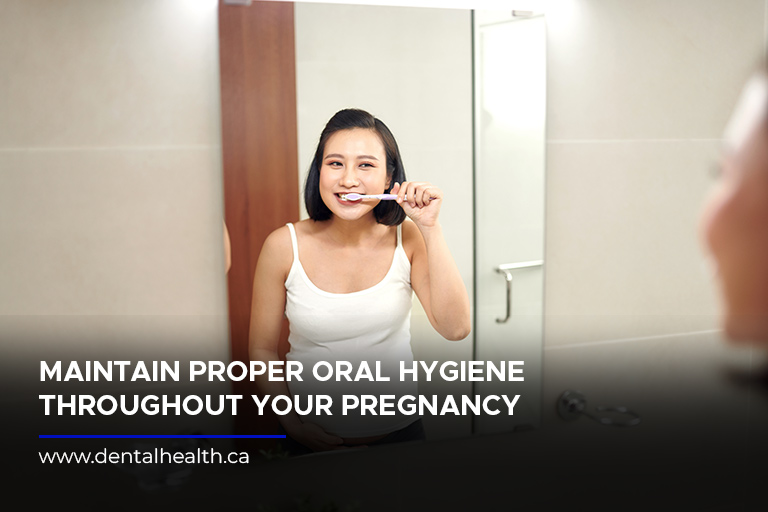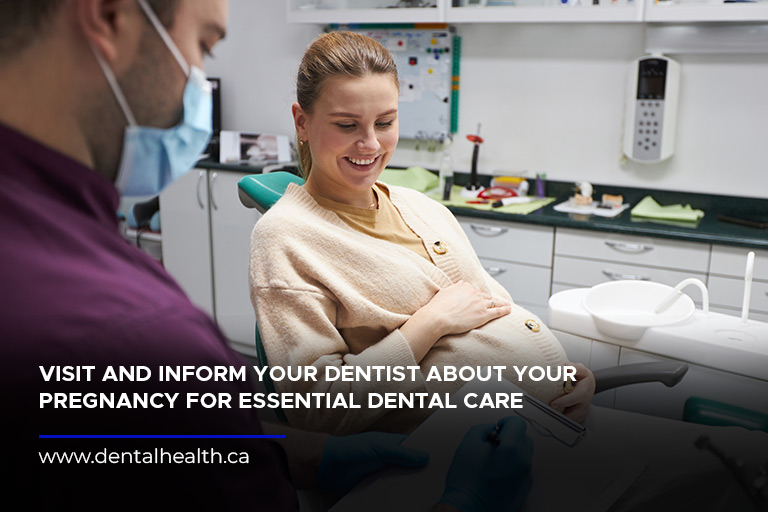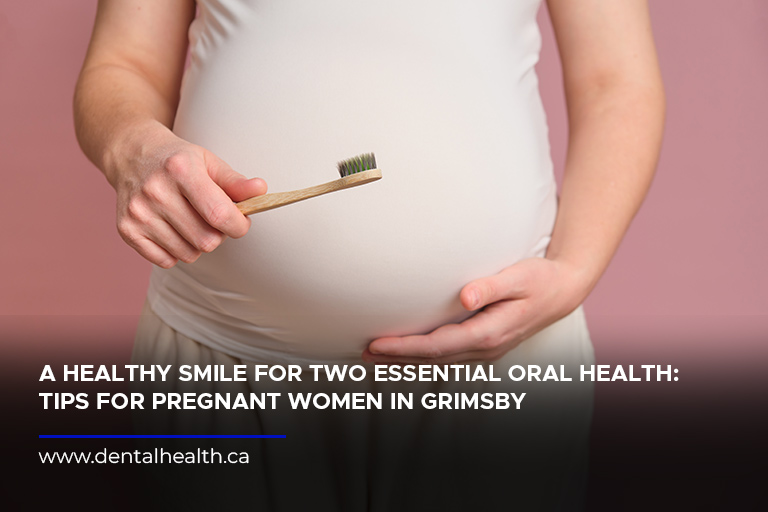Pregnancy is an exciting time filled with anticipation and joy, but it also brings about unique changes in a woman’s body, including her oral health. Maintaining good oral hygiene during pregnancy is not only crucial for the mother’s well-being but also for the developing baby. Hormonal fluctuations, morning sickness, and dietary changes can all impact a pregnant woman’s oral health, making it essential to take extra care of her teeth and gums.
During pregnancy, women may experience increased sensitivity, bleeding gums, and even pregnancy gingivitis, a mild form of gum disease. However, with the right knowledge and practices, these issues can be effectively managed, ensuring a healthy and radiant smile throughout pregnancy.
Why Pregnancy Oral Health Matters
The connection between oral health and overall well-being is particularly significant during pregnancy. Research suggests a correlation between poor oral health and adverse pregnancy outcomes, such as preterm birth and low birth weight. A study published in the Maternal and Child Health Journal, periodontal disease, a severe form of gum disease, has been linked to an increased risk of preeclampsia and gestational diabetes. Taking proactive steps to maintain oral hygiene can significantly mitigate these risks and support a healthier pregnancy for both mother and baby.
Common Oral Health Issues During Pregnancy
Pregnancy hormones can trigger various oral health challenges. Some of the common issues include:
- Pregnancy gingivitis: This is characterized by red, swollen, and bleeding gums due to hormonal changes. It can be managed with meticulous oral hygiene and professional dental cleanings.
- Increased tooth sensitivity: Sensitivity to hot or cold temperatures may occur due to hormonal fluctuations or receding gums. Desensitizing toothpaste and gentle brushing can help alleviate discomfort.
- Tooth decay: Morning sickness and dietary changes can increase the risk of cavities. Frequent brushing, flossing, and limiting sugary snacks are essential for cavity prevention.
- Pregnancy tumours: These are non-cancerous growths on the gums that can develop due to hormonal changes. They are usually painless and disappear after childbirth.
- Dry mouth: Hormonal fluctuations can reduce saliva production, leading to discomfort, bad breath, and an increased risk of tooth decay. Drinking plenty of water and using sugar-free gum or candies can help stimulate saliva flow.
- Erosion of tooth enamel: Frequent vomiting due to morning sickness can erode enamel due to stomach acid. Rinsing with water or a baking soda solution after vomiting can help neutralize the acid.
- Loose teeth: Hormonal changes may temporarily loosen teeth. This is usually a temporary condition that resolves after childbirth.
Top Tips for a Healthy Pregnancy Smile

Maintaining excellent oral health during pregnancy is achievable with these comprehensive tips:
- Brush thoroughly: Brush your teeth for a full two minutes at least twice a day, ensuring you reach all tooth surfaces. Use a soft-bristled brush with fluoride toothpaste and gentle circular motions to effectively remove plaque and prevent tooth decay.
- Floss daily: Daily flossing removes plaque and debris from areas where your toothbrush can’t reach. Gently guide the floss between each tooth and along the gum line, using a sawing motion. This practice helps prevent gum disease and cavities by maintaining the health of your gums.
- Rinse with mouthwash: Incorporate an antimicrobial mouthwash into your routine to further reduce bacteria and promote fresh breath. Opt for an alcohol-free variety to avoid drying out your mouth. Swish the mouthwash for 30 seconds, ensuring it reaches all areas of your mouth, before spitting it out.
- Maintain a healthy diet: Focus on incorporating plenty of fruits, vegetables, and whole grains while limiting sugary snacks and beverages. Calcium-rich foods, such as dairy products and leafy greens, are essential for strong teeth and bones.
- Choose healthy snacks: Choose nutritious snacks like fruits, vegetables, yogurt, or cheese to satisfy your cravings without compromising your oral health. Avoid sugary or starchy snacks, as they can contribute to tooth decay and cavities.
- Stay hydrated: Drink plenty of water throughout the day to prevent dry mouth, stimulate saliva production, and wash away food particles that can contribute to plaque buildup.
- Manage morning sickness: If you experience morning sickness, rinse your mouth with water or a baking soda solution after vomiting. This helps neutralize the stomach acid that can erode tooth enamel, protecting your teeth from damage.
- Use dental products for sensitive teeth: For those with tooth sensitivity, consider using specialized toothpaste and mouthwash designed for sensitive teeth. These products often contain ingredients that soothe discomfort and provide a protective barrier for your teeth.
Dental Visits During Pregnancy

Regular dental check-ups are crucial during pregnancy. Here’s what you need to know:
- Inform your dentist: At your earliest convenience, inform your dentist about your pregnancy, including your due date and any medications you’re currently using. This will allow your dentist to tailor your care to your specific needs and ensure your oral health is maintained during pregnancy.
- Schedule regular checkups: Continue with your routine dental checkups and cleanings during pregnancy. The Canadian Dental Association recommends dental checkups at least twice during pregnancy.
- Address any concerns: If you notice any changes or experience any concerns regarding your oral health, promptly communicate them with your dentist. Early intervention can prevent minor issues from escalating into more significant problems.
- Safe dental treatments: Rest assured that most dental procedures, such as cleanings, fillings, and X-rays (with appropriate shielding), are considered safe during pregnancy. Your dentist will take necessary precautions to prioritize your safety and comfort.
- Emergency dental care: Should you encounter any dental emergencies, including severe tooth pain, swelling, or bleeding, seek immediate dental attention. Prompt care can address these issues effectively and protect your oral health during pregnancy.
Maintaining good oral health during pregnancy is an investment in your well-being and your baby’s health. By following these comprehensive recommendations and seeking regular dental care, you can enjoy a healthy and beautiful smile throughout your pregnancy journey.
If you have any questions or concerns about your oral health during pregnancy, don’t hesitate to contact Kingsway Family Dentistry in Grimsby at (905) 563-4001. Our team is committed to providing comprehensive and compassionate dental care for expectant mothers. We understand the unique needs of pregnant women and are here to support you in achieving optimal oral health.

